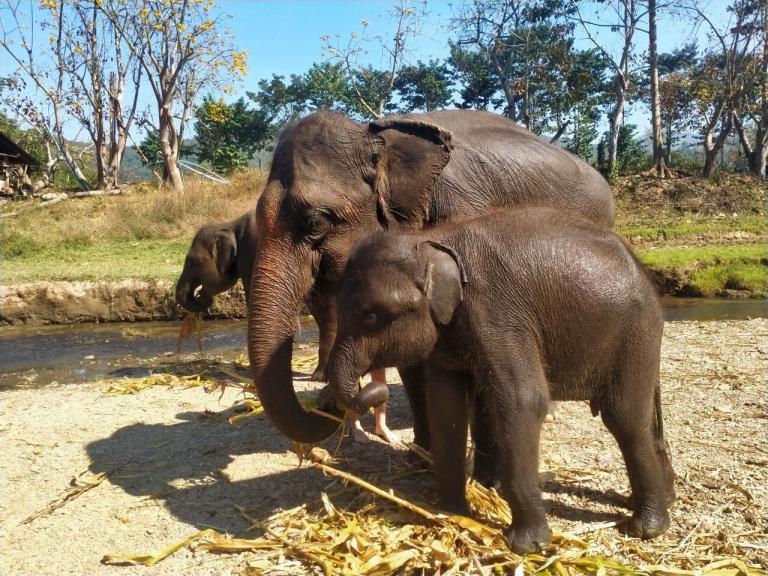Baby Elephants
Baby elephants, also known as calves, are born after a gestation period of around 22 months. This gestation is one of the most prolonged pregnancy periods of any animal. During this time, the mother elephant will carry the calf in her uterus, nourishing and protecting it as it grows.
The Birthing Process
The birthing process for elephants can be quite lengthy and challenging. When the time comes for the calf to be born, the mother will typically go off by herself to give birth. The actual delivery can take several hours, with the calf emerging front feet first, followed by the head, and then the rest of the body. Once the calf is born, it is pretty small and delicate. A newborn elephant calf typically weighs around 120-150 kg and stands about 3 feet tall at the shoulder. Despite their small size, baby elephants are very active and curious. They will start to explore their surroundings soon after birth.
Developing Elephant Calf
As the calf grows and develops, the mother elephant will continue to care for it, nursing it for several years and providing protection and guidance as it learns about the world. Female elephants will also help raise other calves in the herd.

Developing Elephant Calf
As the calf grows, it will continue to gain weight and size rapidly. By the time it is six months old, a baby elephant will weigh around 300 kg and stand about 6 feet tall. After that, they will continue to grow until they reach maturity at approximately 10-15 years of age. Overall, baby elephants are fascinating creatures that require much care and attention from their mothers. The birthing process is long and challenging, but it is also one of nature’s most unique experiences. The bond between mother and calf is strong, and watching how they interact and communicate is fascinating.
As The Calf Grows
As the calf grows and becomes more independent, it will explore its environment more and more. It will start to eat solid food, such as leaves and branches, and nurse from its mother. As it gains strength and confidence, the calf will begin to play and socialize with other herd members. During the first few years of life, the calf will learn essential skills and behaviors from its mother and other adults in the herd. For example, it will learn how to use its trunk to grab food and drink water and communicate with other elephants through vocalizations and body language.
Mothers Role
Mother elephants play a crucial role in the development of their calves. They provide physical protection, nourishment, and emotional support. They also teach the calf how to survive in the wild, find food and water, recognize predators, and protect itself from them. As the calf grows, it will also develop its unique personality and characteristics. Like humans, each elephant calf is individual and has its own set of likes and dislikes, strengths, and weaknesses.
Baby Elephants & Humans?
One of the most interesting facts about baby elephants is that they are similar to human babies in many ways. They are curious and playful and have a great desire to learn. They also have a strong memory and can remember things for a long time.
To end with, baby elephants are fascinating creatures that require much care and attention from their mothers. The birthing process and the early years of a baby elephant’s life are crucial for its survival and development. It is a privilege to witness and learn about the bond between a mother and her calf and the incredible process of growth and development that takes place during the first years of an elephant’s life.
Commitment of Care
It is our honor to share this sanctuary with all our guests from around the World. We are thankful for those who support the Elephant Freedom Project, as this allows us to maintain the highest level of care for our gentle giants. We are committed to providing the best medical care possible. But, more than that, we give the love that these elephants deserve. We are their voice in all matters concerning their welfare.




